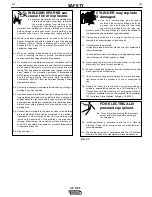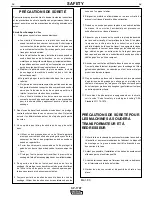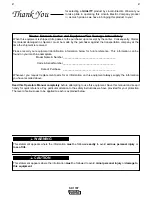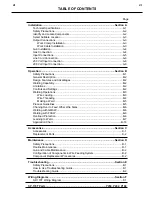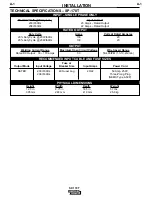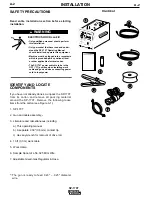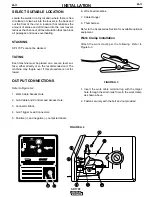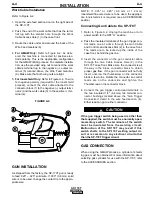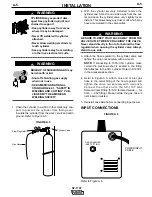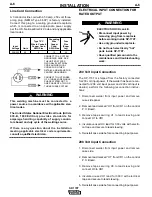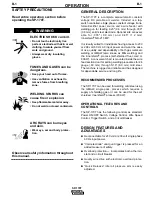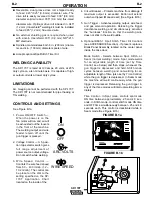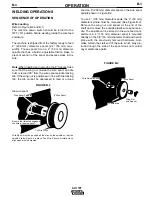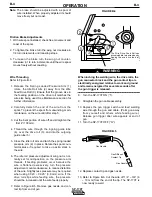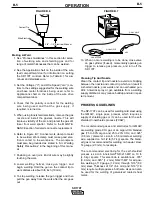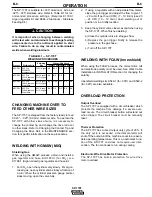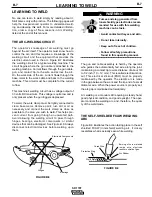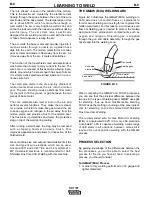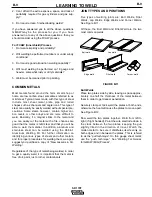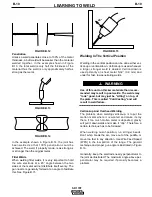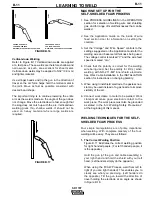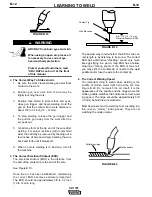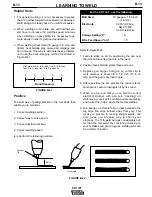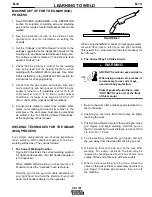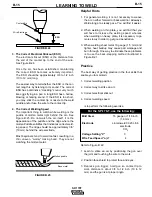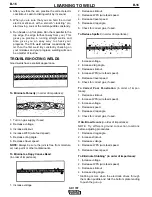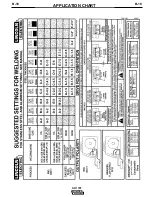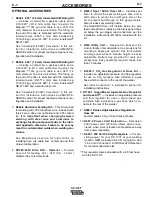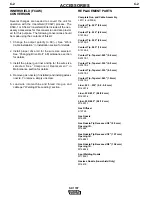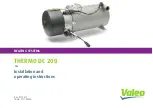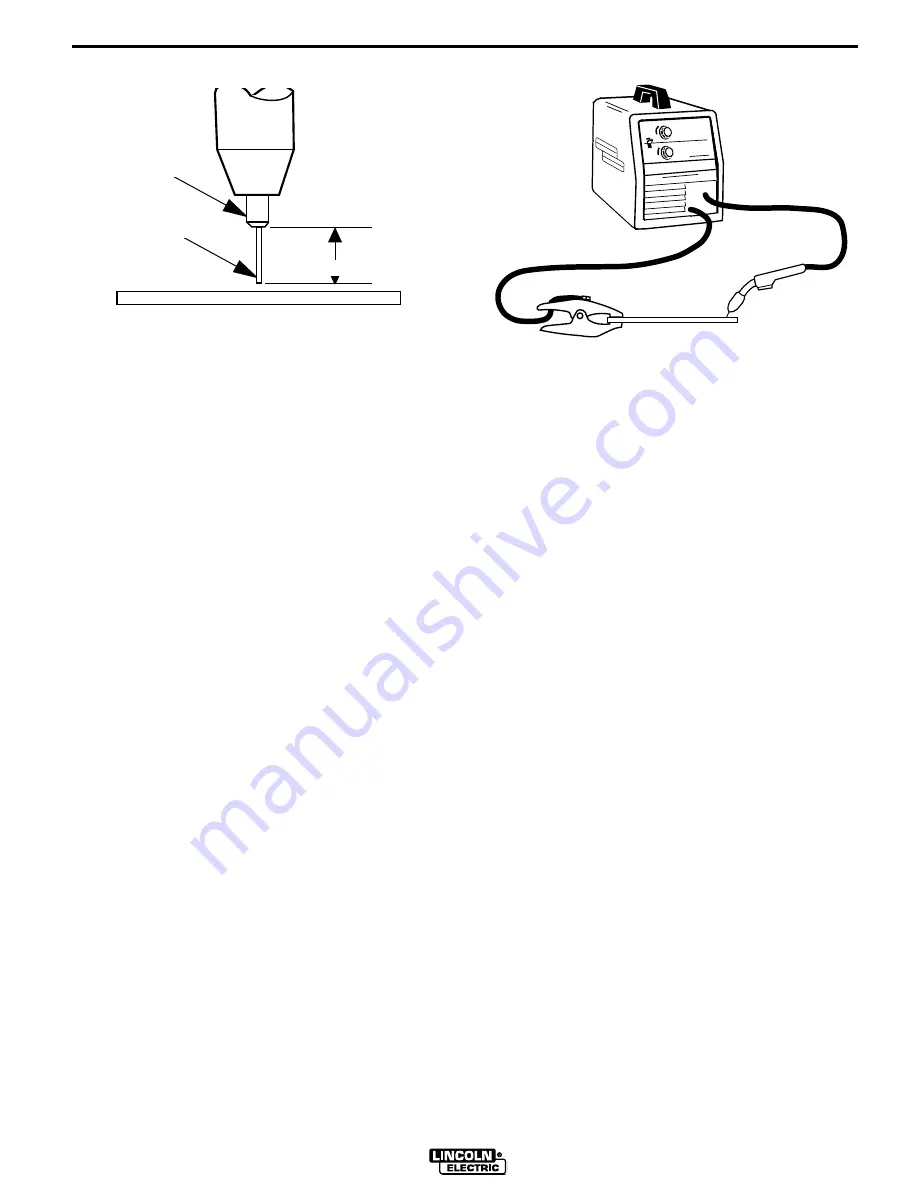
B-5
B-5
OPERATION
Making A Weld
1. See “Process Guidelines” in this section for selec-
tion of welding wire and shielding gas and for
range of metal thicknesses that can be welded.
2. See the Application chart on the inside of the wire
feed compartment door for information on setting
the SP-170T controls. Refer to Table B.1 for alu-
minum and stainless wire.
3. Set the Voltage (“V”) and Wire Speed (“olo’”) con-
trols to the settings suggested for the welding wire
and base metal thickness being used, refer to
3.
Applications chart on the inside of the wire drive
compartment door.
4. Check that the polarity is correct for the welding
wire being used and that the gas supply, if
required, is turned on.
5. When using Innershield electrode, remove the gas
nozzle and install the gasless nozzle. This will
improve visibility of the arc and protect the gas dif-
fuser from weld spatter. Refer to the MAINTE-
NANCE section for details on nozzle replacement.
6. Refer to Figure B.7. Connect work clamp to metal
to be welded. Work clamp must make good elec-
trical contact to the workpiece. The workpiece
must also be grounded as stated in “Arc Welding
Safety Precautions” in the beginning of this manu-
al.
7. Position gun over joint. End of wire may be lightly
touching the work.
8. Lower welding helmet, close gun trigger, and
begin welding. Hold the gun so the contact tip to
work distance is about 3/8 inch (10 mm).
9. To stop welding, release the gun trigger and then
pull the gun away from the work after the arc goes
out.
FIGURE B.6
10. When no more welding is to be done, close valve
on gas cylinder (if used), momentarily operate gun
trigger to release gas pressure, and turn off the
SP-170T.
Cleaning Tip And Nozzle
Clean the contact tip and nozzle to avoid arc bridging
between the nozzle and contact tip which can result in
a shorted nozzle, poor welds and an overheated gun.
Hint: Anti-stick spray or gel, available from a welding
supply distributor, may reduce buildup and aid in spat-
ter removal.
PROCESS GUIDELINES
The SP-170T can be used for welding mild steel using
the GMAW, single pass, process which requires a
supply of shielding gas or it can be used for the self-
shielded, Innershield
®
process (FCAW).
The recommended gases and electrodes for GMAW
are welding grade CO
2
gas or an argon-CO
2
blended
gas (75 to 80% argon and 25 to 20% CO
2
) and .025"
(0.6 mm) diameter Lincoln L-56 mild-steel welding
wire, supplied on 12-1/2 lb (5.7 kg) spools. The blend-
ed gas is recommended for welding on heavier steel,
14 gauge (2.0 mm), for example.
The recommended electrode for the self-shielded
process is Lincoln Innershield
®
NR-211-MP on 10 lb
(4.5 kg) spools. This electrode is available as .035"
(0.9 mm) and .045" (1.2 mm) NR-211-MP for all posi-
tion welding of 18 gauge (1.2 mm) through 5/16" (8.0
mm) steel. Thickness of 1/4" (6.4 mm) and 5/16" (7.9
mm) require multiple passes. both wire sizes can also
be used for the welding of galvanized coated sheet
metal.
3/8" – 1/2" Electrical Stickout
Contact Tip
Wire Electrode
FIGURE B.7
WORKPIECE
GUN CABLE
ARC
WORK CLAMP
SP-170T
Summary of Contents for SP-170T
Page 31: ...B 18 SP 170T B 18 APPLICATION CHART ...
Page 44: ...SP 170T NOTES ...

